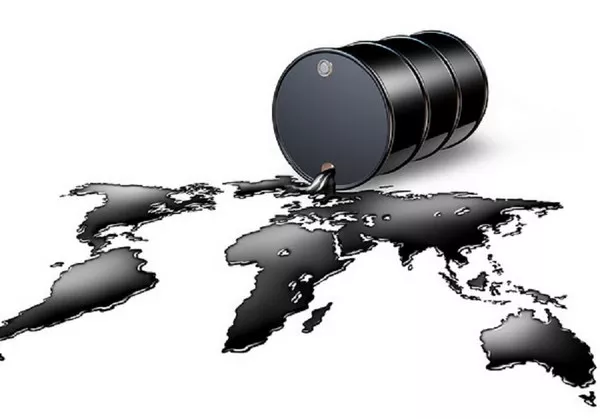Futures trading has long been a cornerstone of the financial markets, providing investors with opportunities to speculate on the future price movements of various assets, including commodities like oil. In recent years, the introduction of mini futures has expanded accessibility to futures markets, offering traders with reduced capital requirements the ability to participate in these markets. In this article, we delve into the world of mini oil futures, exploring their significance, characteristics, and availability in the trading landscape.
Understanding Futures Trading
Futures trading involves standardized financial contracts that obligate the buyer to purchase an underlying asset or the seller to sell an underlying asset at a predetermined price and date in the future. These contracts are traded on organized exchanges, such as the Chicago Mercantile Exchange (CME) or the Intercontinental Exchange (ICE), and cover various asset classes, including commodities, currencies, and financial instruments.
Futures trading serves several purposes, including price discovery, risk management, and speculation. Market participants use futures contracts to hedge against price fluctuations or to speculate on future price movements, contributing to price transparency, liquidity, and efficiency in global financial markets.
Introduction of Mini Futures
Mini futures represent a recent innovation in the futures market, designed to cater to individual investors and traders with smaller capital bases. Unlike standard futures contracts, which typically have larger contract sizes and higher margin requirements, mini futures have smaller contract sizes and reduced margin requirements, making them more accessible to retail traders.
Mini futures allow traders to gain exposure to the price movements of underlying assets, such as commodities, without the need to commit significant capital. This democratization of futures trading has broadened participation in futures markets, empowering a wider range of market participants to engage in futures trading and diversify their investment portfolios.
Introduction of Mini Oil Futures
Mini oil futures represent a specific type of mini futures contract that allows traders to speculate on the price of crude oil, one of the most actively traded commodities in the world. Crude oil futures serve as a benchmark for global oil prices, influencing a wide range of industries, including energy, transportation, and manufacturing.
Mini oil futures offer traders exposure to the price of crude oil with reduced contract sizes compared to standard crude oil futures contracts. By trading mini oil futures, investors can take advantage of price movements in the oil market without the need to trade larger, more capital-intensive contracts.
Availability of Mini Oil Futures
Mini oil futures are available for trading on various futures exchanges, including the Chicago Mercantile Exchange (CME) and the Intercontinental Exchange (ICE). These exchanges offer mini oil futures contracts that cater to different trading preferences and investment strategies, providing traders with flexibility and choice in accessing the oil market.
The availability of mini oil futures contracts may vary depending on the futures exchange and the specific contract specifications. Traders can typically find information about mini oil futures contracts, including contract size, tick size, expiration dates, and margin requirements, on the exchange’s website or through their trading platform.
Characteristics of Mini Oil Futures
Mini oil futures contracts share several characteristics with standard crude oil futures contracts, including:
Contract Size: Mini oil futures contracts have smaller contract sizes compared to standard crude oil futures contracts, allowing traders to participate in the oil market with reduced capital requirements.
Tick Size: The tick size, or minimum price movement, of mini oil futures contracts may be smaller than that of standard contracts, enabling traders to execute trades with greater precision and granularity.
Expiration Dates: Mini oil futures contracts have expiration dates that dictate the delivery or settlement of the underlying asset. Traders should be aware of expiration dates and rollover procedures to manage their positions effectively.
Margin Requirements: Mini oil futures contracts typically have lower margin requirements compared to standard contracts, making them more accessible to retail traders with limited capital.
Liquidity: Despite their smaller contract sizes, mini oil futures contracts often exhibit sufficient liquidity, allowing traders to enter and exit positions with ease and minimal slippage.
Benefits of Mini Oil Futures
Mini oil futures offer several benefits for traders looking to participate in the oil market:
Accessibility: Mini oil futures make it easier for individual investors and traders with limited capital to access the oil market and gain exposure to crude oil prices.
Affordability: With smaller contract sizes and reduced margin requirements, mini oil futures allow traders to participate in the oil market with lower capital commitments compared to standard futures contracts.
Risk Management: Mini oil futures enable traders to hedge against price fluctuations in the oil market and manage risk exposure in their investment portfolios.
Diversification: By adding exposure to the oil market through mini oil futures, traders can diversify their investment portfolios and potentially enhance risk-adjusted returns.
Flexibility: Mini oil futures provide traders with flexibility in trading strategies, allowing them to take advantage of short-term price movements or longer-term trends in the oil market.
Conclusion
In conclusion, mini oil futures represent a convenient and accessible way for traders to gain exposure to the price movements of crude oil. With their smaller contract sizes, reduced margin requirements, and easy accessibility, mini oil futures offer individual investors and traders the opportunity to participate in the oil market without the need for significant capital commitments. By understanding the characteristics and benefits of mini oil futures, traders can effectively navigate the world of futures trading and capitalize on opportunities in the dynamic oil market.


